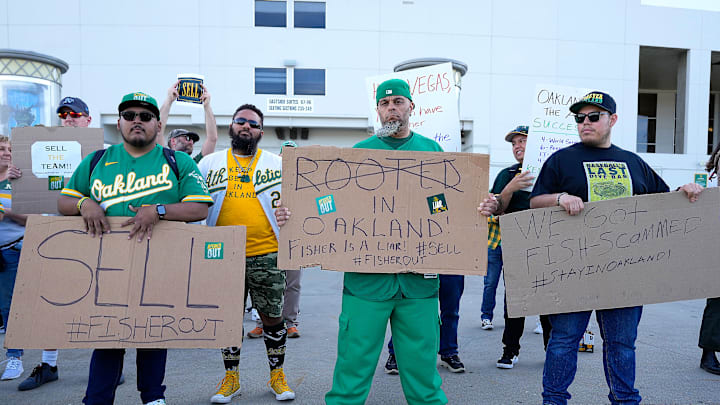Option 2: Geographical realignment
National League (or The West)
Pacific: Los Angeles (AL), Los Angeles (NL), San Diego, San Francisco
Southwest: Arizona, Houston, Las Vegas, Texas
Mountain: Colorado, Kansas City, Portland, Seattle
Midwest: Chicago (AL), Chicago (NL), Minnesota, St. Louis
American League (or The East)
Central: Cincinnati, Cleveland, Detroit, Milwaukee
Southeast: Atlanta, Miami, Nashville, Tampa Bay
Atlantic: Baltimore, Philadelphia, Pittsburgh, Washington
Northeast: Boston, New York (AL), New York (NL), Toronto
Yup, this shakes things up in a major way, and I know for a fact there would be major pushback from a lot of people. Again, I'm really not advocating for this, but exploring what I think is already crossing the minds of those who work in the League Office.
There are some cool things with this too. The New York, Los Angeles, and Chicago teams fighting within their own divisions now. A true "East Coast vs. West Coast" type of rivalry going on. And again, with how the new schedule works, they'll still play every team in the league. Still, this does change a lot of how we view the game if this would happen.
Keep an eye out for what industry insiders begin to say as expansion gets closer and closer. Major League Baseball could very well maintain most of the status quo, but with their actions lately, I wouldn't rest on that idea.
